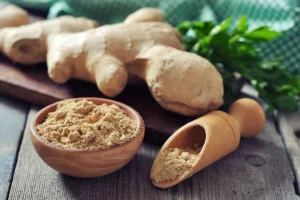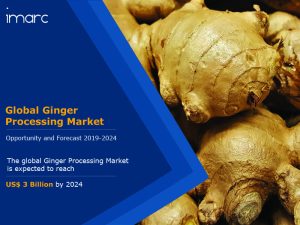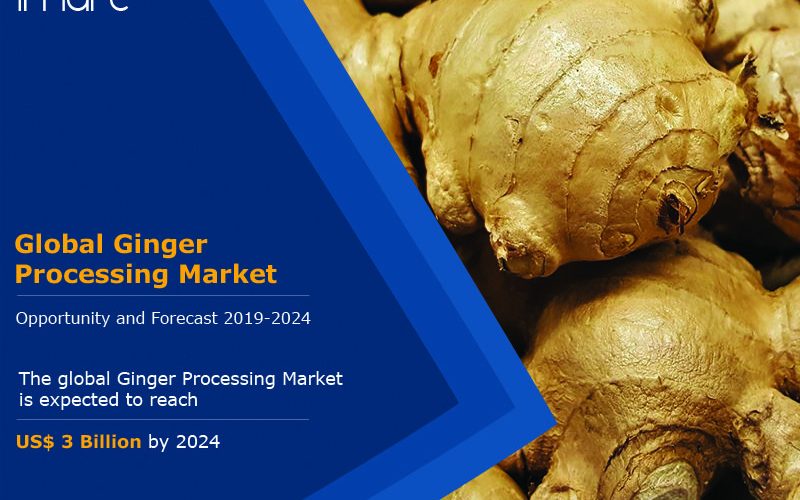Ginger, the aromatic root known for its unique flavor, has a fascinating history as a medicinal powerhouse. From ancient civilizations to modern times, ginger has played a pivotal role in traditional medicine and emerged as a popular health remedy in various cultures. This article takes you on a journey through ginger’s remarkable medicinal history.
Ancient Beginnings
The use of ginger for its medicinal properties dates back over 5,000 years to ancient China and India. It was one of the earliest spices to be cultivated and traded. The early applications of ginger included:
- Digestive Aid: In Ayurvedic medicine, ginger was used to stimulate digestion and treat various digestive ailments.
- Anti-Inflammatory: Ancient Chinese herbalists employed ginger for its anti-inflammatory properties, using it to alleviate pain and joint stiffness.
- Respiratory Health: Ginger was utilized to ease respiratory conditions, such as coughs and colds.

Image by: https://www.greendna.in/products/dry-ginger-powder
Ginger in the Middle East
As trade routes expanded, ginger’s reputation as a medicinal herb spread to the Middle East. It became a prized spice in Middle Eastern cuisines and was used in various medicinal concoctions:
- Ancient Greece: Greek physicians like Dioscorides and Galen valued ginger for its medicinal properties, recommending it as a remedy for digestive troubles.
- Persian Traditions: In Persia (modern-day Iran), ginger was a key ingredient in traditional remedies for colds and flu.
Ginger in the Spice Trade
During the Middle Ages, ginger was a valuable commodity in the spice trade. It found its way into Europe and became a staple in European herbal medicine:
- Gingerbread: The tradition of gingerbread-making in Europe dates back to the 13th century, with the spiced bread being praised for its digestive benefits.
- Digestive Elixir: Ginger was commonly used in herbal elixirs to soothe digestive discomfort.
- Cultural Symbol: In medieval Europe, ginger was not only a remedy but also a symbol of social status and hospitality.
Ginger in Traditional Asian Medicine
In Asia, ginger continued to play a prominent role in traditional medicine:
- Traditional Chinese Medicine (TCM): Ginger is a fundamental herb in TCM, where it’s believed to balance the body’s energy and dispel cold and dampness.
- Ayurveda: In India, ginger was incorporated into Ayurvedic remedies for a wide range of health issues, from colds to arthritis.
Ginger’s Emergence in Modern Medicine
Ginger’s journey as a medicinal remedy didn’t stop in ancient times. It continued to gain recognition and respect in modern medicine:
- Nausea Relief: In the mid-20th century, ginger’s effectiveness in alleviating nausea, particularly in pregnant women and chemotherapy patients, was widely acknowledged.
- Anti-Inflammatory and Antioxidant Properties: Ginger’s anti-inflammatory and antioxidant properties have been the subject of numerous scientific studies, with potential applications in various medical fields.
- Pain Management: Some research suggests that ginger may be a natural pain reliever, potentially benefiting those with arthritis and muscular discomfort.
- Culinary and Medicinal Blend: Today, ginger seamlessly blends into both culinary and medicinal applications. It’s used in herbal teas, supplements, and as a spice in various cuisines.
The Global Influence of Ginger
Ginger’s medicinal history transcends borders, and its influence can be seen in various cultures and health practices worldwide:
- Traditional Remedies: Ginger is a component of traditional remedies in diverse cultures, from ginger tea in the Caribbean to ginger-infused soups in South Asia.
- Holistic Healing: Ginger fits into the growing movement of holistic health and wellness, where natural remedies are celebrated for their multiple benefits.
- Culinary Delight: In addition to its health attributes, ginger continues to be cherished for its culinary appeal in dishes like stir-fries, curries, and desserts.

https://i.pinimg.com/originals/40/22/bf/4022bf846c7cec0f42e324edaffd27f9.jpg
In Conclusion: Ginger’s Timeless Healing Legacy
Ginger’s medicinal history is a testament to its enduring legacy as a health remedy. From ancient civilizations to modern times, ginger’s therapeutic properties have transcended borders and continue to be celebrated worldwide. Its remarkable journey from a spice in ancient remedies to a modern marvel in both medicine and cuisine exemplifies the profound impact of traditional herbal wisdom on our contemporary understanding of health and wellness.












